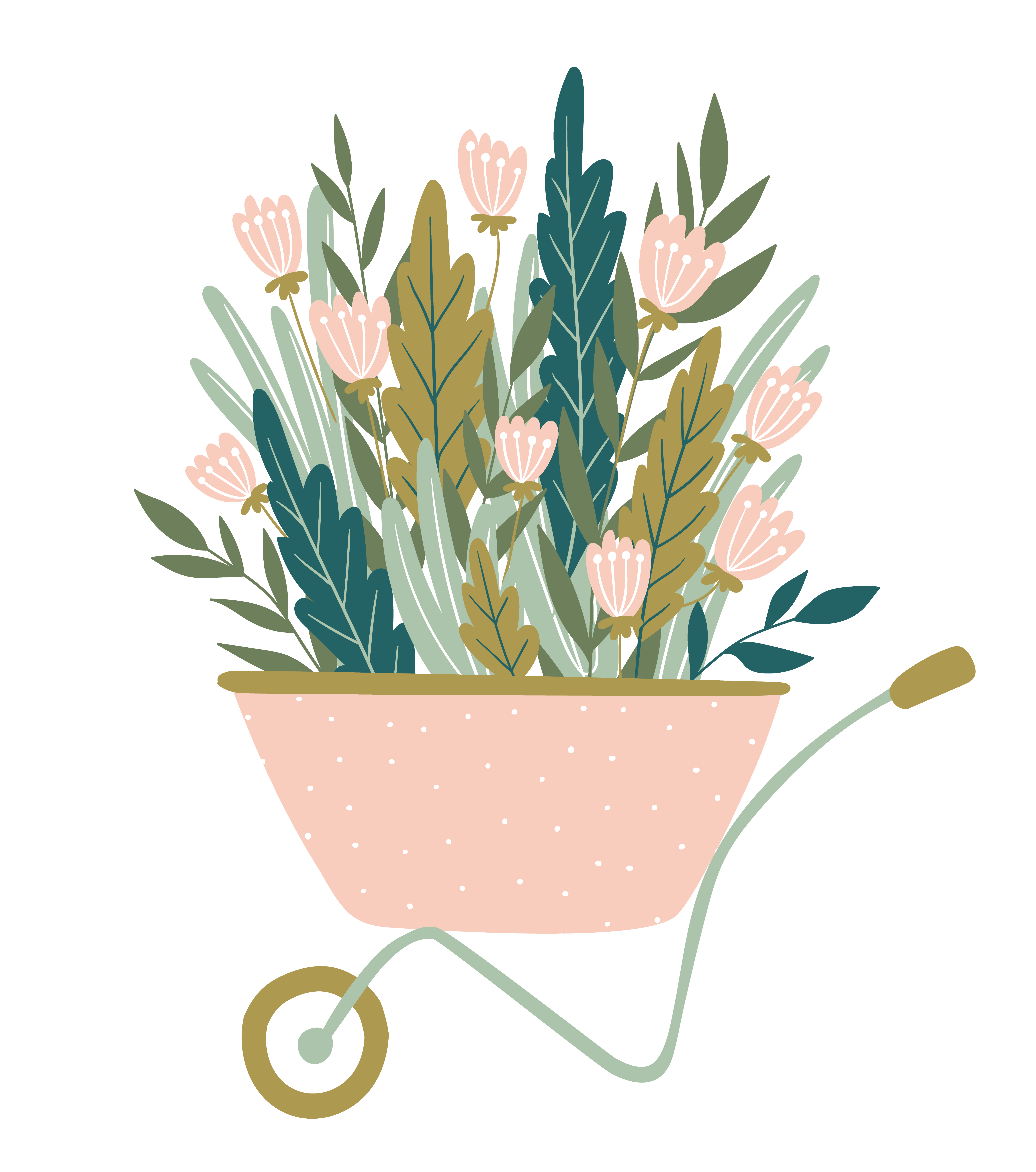by Rachel Gore
Are you looking for a way to improve your health? If so, gardening may be the perfect fit for you. Gardening offers physical and mental health benefits, promotes overall well-being and enhances life satisfaction in a number of ways:
- It is a form of mindfulness. Growing a garden is a great way to practice mindfulness, which the American Psychological Association says provides numerous mental health benefits, including reducing stress, depression and anxiety, regulating emotions and increasing focus. Being mindful involves focusing on the here and now, which can be achieved through the meditative nature of gardening. Practicing mindfulness while you garden is simple: utilize your five senses to become aware of the world around you. Turn off your phone, notice how the soil feels in your hands, feel the fresh air around you and listen closely to the sounds of the outdoors. If you catch your mind drifting away, do not become discouraged. Instead, take a deep breath and do your best to refocus.
- It keeps you active. Gardening is a form of moderate exercise, putting it in the same category as riding a bicycle or going on a walk. While you tend to your garden, you are working and stretching major muscle groups with activities like bending over, lifting bags of potting soil, digging holes and weeding. In addition to the physical benefits that come from being active, such as weight management and diabetes prevention, regular exercise also encourages your brain to release endorphins. Endorphins are feel-good hormones known to boost your mood both during and after physical activity.
- It provides your body with essential vitamin D. When was the last time you spent an afternoon outside? Between being confined to an office during work and the appeal of staying inside to unwind at the end of a long day (hello, Netflix!), many of us do not get enough exposure to sunlight. As appealing as those TV binges are, consider supplementing them with some gardening time each week to soak up the health benefits of sun and fresh air exposure. Many of us are walking around with insufficient levels of Vitamin D, which is a crucial vitamin that our body makes naturally when exposed to sunlight. In fact, over one billion adults and children worldwide don’t have enough Vitamin D. Getting sufficient Vitamin D prevents heart problems, helps bones grow, fights disease, and reduces symptoms of depression and anxiety.
- It boosts your self-esteem. Gardening is much more complex than simply keeping a plant in the sun and watering it from time to time. While sunlight and water are key components to plant health, many other factors are also important, including nutrient absorption, temperature, and humidity. As a beginner gardener, you may not know everything that your plants need—and that’s okay! Even if you don’t naturally have a green thumb, your persistence and eagerness to learn will help you (and your plants) grow. Feeling like you have no sense of purpose can lead to mental health issues and low self-esteem. Gardening can help reverse that by giving you the responsibility of nurturing your plants and keeping them healthy. Watching the first flower emerge from a plant that started as a packet of seeds can make you feel a great sense of accomplishment and purpose.
- It promotes healthy eating habits. Edible gardening is another option. Edible gardens don’t have to be huge—perhaps you love using mint leaves to garnish drinks, so you decide to invest in a single plant. Maybe you want to try making homemade salsa from tomatoes you grew yourself. You have a wide range of options for what edible food to grow, such as herbs, berries, fruits, veggies and seeds. In addition to allowing you to establish a relationship with the source of your food, it promotes fresh, natural and healthy eating.
“We may think we are nurturing our garden, but of course, it’s our garden that is really nurturing us.” – Jenny Uglow








Leave A Comment